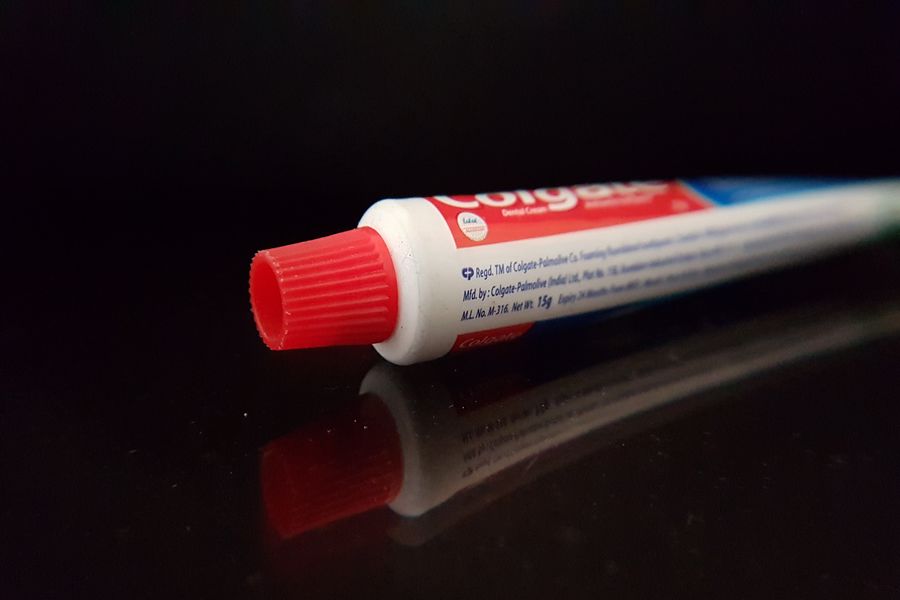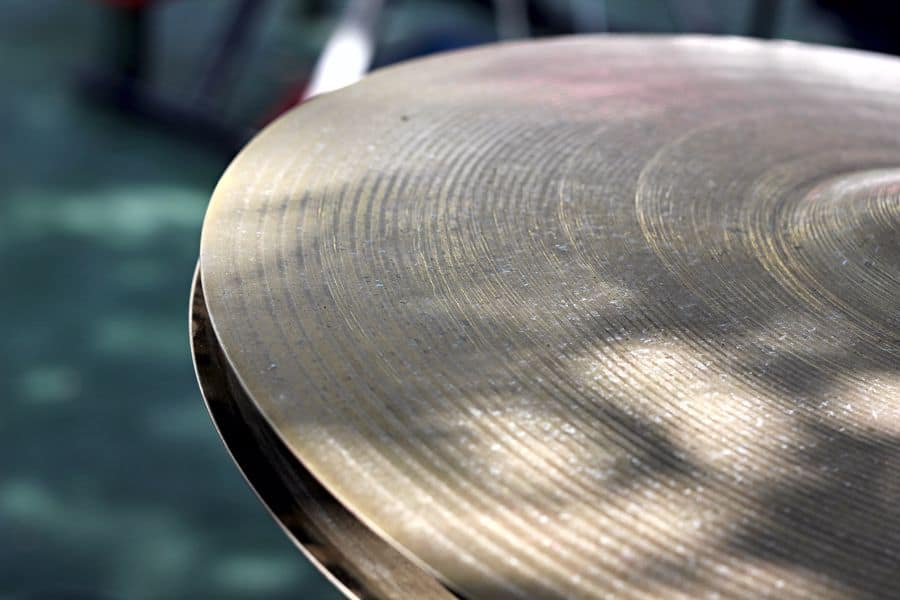As an Amazon Associate we earn from qualifying purchases.
The cymbal is a musical instrument with a beat and rhythm that captivates the soul’s music. Cymbals are the most visually appealing piece on the stage. Drummers go above and beyond to keep the cymbals shining like new. Here’s a guide to cleaning cymbals with household items.
Contents
How to Clean Cymbals with Household Items
We frequently undervalue the importance of kitchen essentials that can help with cleaning. Cymbals, for example, are made of brass, it tarnishes over time. Here’s a simple method for cleaning cymbals that use generic household items.
Materials Required
- Lemons
- Ketchup
- Toothpaste
- Grape juice
- Linseed oil

Step 1: Use Lemons
Lemons are the most common and effective cleaning agents found in the home. Whatever can clean any metal surface must contain some level of acidity. Lemon contains citric acid and has a pH of 2.5. As a result, it is one of the first household items used for cleaning.
- Cut the lemon into two halves and throw away the seeds of the lemon.
- Squeeze the juice and apply it properly to the cymbals. Rub the extra juice properly on the instrument. You can add a pinch of salt, and it activates the cleaning process.
- Leave it for a few minutes and then rinse it off.
You can get shiny cymbals without much effort. Never apply lemon around the logo of the instrument; the acidic component reacts which leads to fading off the logo when it comes in contact with lemon.
You can use the same procedure with tamarind. It has a low pH value and gives promising results.
Step 2: Use Ketchup
Ketchup is the most common item around the house. Use this to clean your cymbals.
- Ketchup has 3.9pH, which is higher than lemon, yet it falls in the acidic range.
- Apply ketchup all over the cymbals; make sure you apply it well on the grooves of the cymbal.
- Let it rest for 20-30 minutes. After 15-20 minutes, use a paper towel to remove the ketchup from the cymbal.
- Rinse off the ketchup with warm water after 30 minutes.
- It is advisable to use warm water instead of normal tap water, and warm water breaks off the dirt and debris from the cymbal; it is good to clean with warm water.
Step 3: Vinegar and Water
Vinegar and water solution is effective in disinfecting music instruments such as drum heads and cymbals along with cleaning them thoroughly.
- The cymbals get dirty with the marks of the stick, and on the tarnished metal, layers of grime settle. Vinegar helps in breaking the dirt build-up.
- Make a mixture of white vinegar and water. Mix it in a tub or bucket, in which the cymbal can submerge.
- Take an appropriate container and dilute the vinegar in a ratio of 3:1, which means three parts water and one part water.
- Submerge the cymbal in the solution and leave it for 30-45 minutes.
- Occasionally agitate the water, as the solution can form a layer over the cymbal.
- After 45 minutes, rinse it with warm water. Use a microfiber cloth and scrub the residuals of dirt and grime over the cymbals.
- Rinse it again and, you are good to use the cymbal for the next music tour.
Step 4: Use Toothpaste
Toothpaste is an unpopular method of cleaning zinc, metals, or plastic materials. But if used in the right way, it can be an effective method of cleaning cymbals.

- Take a bowl of warm water and apply a little bit of soap to it.
- Use the soap mixture to clean the loose debris from the cymbals. Use a sponge or microfiber cloth to clean the debris from the cymbals.
- Rinse the soap from the cymbals and then apply a pea amount of toothpaste on the cymbal.
- Work it well with a soft-bristled toothbrush. Apply it to a small area, and check if it is working or not.
- Apply it all over the cymbal and scrub it well with a toothbrush. After scrubbing, rinse it off in tap water.
- Dab it with a towel, soak extra water from the cymbal, and look at the texture of the cymbal. If it still looks dull, then repeat the procedure with toothpaste.
Copper and its alloy shine when toothpaste is applied; you will be amazed by the results. However, it is advisable to do a patch test; toothpaste has abrasive materials, which can lead to scratches on the surface of the cymbals.
Step 5: Hand Soap
Hand soap which is easily available at any home can be used for cleaning the cymbals.
- Apply a few drops of hand soap to the cymbal and use the sponge to work on the surface.
- Work it well, till the debris and dirt loosen up. Once it loosens up, you can wash the cymbal in the sink.
- The soap breaks out the dirt and cleans any stains or grime from the cymbals.
Step 6: Use Baking Soda
Baking soda is another household item that has made its name one of the popular cleaning agents.
Baking soda is mildly acidic which makes it one of the top choices to clean cymbals.
- Take a handful of baking soda and sprinkle it all over the cymbals.
- Let it rest for 30minutes; in 30 minutes, the dirt breaks out, and it gets easier to clean.
- In addition to that, you can mix vinegar and salt with baking soda. This mixture is more effective in cleaning the cymbals.
- Use a sponge scrubber and scrub it well. Keep scrubbing gently until all the coverage area is cleaned.
- Next, rinse it with warm water. After rinsing, you will be amazed at the results. It brings shine and luster to the cymbals.
Here is a video guide that will help you understand the steps in a better way.
Step 7: Use Linseed Oil
To keep the shine intact in the cymbals, apply linseed oil; it is one of the most effective methods to polish the surface.
- Pour some drops of linseed oil on the cymbal.
- Use a cloth to spread the oil evenly on the surface, don’t forget to put linseed oil on the grooves.
- Next, let the linseed oil rest for 30 minutes. After that, remove the extra from the surface.
- A thin layer of linseed oil acts as a protective coating over the cymbals.
On a musical tour, you want the cymbals to shine and bring out the best music from the instrument. The linseed oil prevents it from tarnishing and rusting over time.
Step 8: Polish It With Cymbal Polish
Cymbal polish is an effective polish made to restore the shine and luster of cymbals.

- The manufacturer’s polish is made up of materials that suit the alloys of the cymbal.
- Apply cymbal polish with a clean cloth over the cymbals and move gently along the grooves of the cymbal.
- Break it into sections, as the cymbals dry off quickly, apply it in sections and work with a cotton cloth.
This isn’t a household product, although nothing can polish it well like a cymbal polisher. Use it to keep your cymbals clean and shiny.
Here is an article on how manufacturer products are good for alloy-based cymbals.
Why Should You Clean Cymbals?
Like how dirt and grime can ruin your precious vinyl records, they can also affect the music of the cymbals. Layers of grime and dust settled over the cymbals affect the sound. It becomes darker and low-pitched. The low-pitched sound isn’t bad, but it is not good for the instrument when it is influenced by dirt.
Frequently Asked Questions
Which to Clean Stains from Cymbals?
Use a nylon brush and scrub the stain from the cymbals. When the stains are sticky and cannot be scrubbed off easily, apply any gentle soap that does not have abrasive agents and scrub it with a heavy nylon brush.
Scrub it along the grooves, and the stain comes off with ease. Rinse the cymbals, and you are good to go for the next musical battle.
Do Grime and Dirt Affect the Sound of the Cymbals?
Yes, filthy cymbals which are not been cleaned for years can cause mellow or dark sounds. Therefore, it is a sign that you must clean the cymbals without delay.
Is It Expensive to Clean Cymbals?
No, with household items listed in the article, it hardly takes much money to clean Cymbals. You get most of the products below $1. You can purchase the products from a nearby store, or you can have them at home, use it all and make the cymbal shine like new.
Conclusion
Many methods help in cleaning cymbals. If you want to stick with manufacturer products, then it’s fine; it shows promising results. On the other hand, if you want to explore the wide range of household products, stick to that, as it has too satisfying results.
Although, it is recommended to use the manufacturer’s product in the long run. Household products can slowly erode the alloy of metal used in the cymbals if not used properly.

